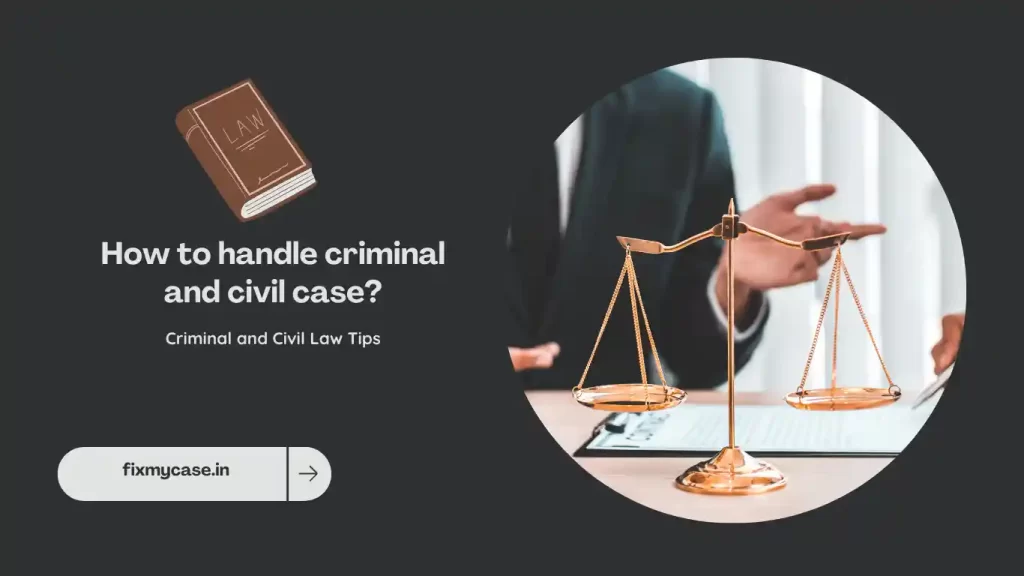Dealing with criminal and civil cases requires a clear understanding of the legal procedures and requirements so it is very important that you read the steps below carefully to understand them clearly.
How to handle a criminal case :
1. Registration of FIR :
If you are a victim of a crime, report it to the nearest police station. The police will register a First Information Report (FIR) under the relevant provisions of the Indian Penal Code (IPC) or other applicable laws.
2. Inquiry :
The police will investigate and collect evidence. It is important to cooperate with the investigating officer and provide the necessary information or evidence.
3. Charge-sheet and trial :
If the police get enough evidence, they will file a chargesheet in a criminal court. The court will then hold a hearing and examine the evidence and witnesses. During this process, both the prosecution and the defense present their case.
4. Judgment :
After considering the evidence and arguments of both sides, the court will pass a verdict. If the accused is found guilty, the court will pronounce the sentence as per the relevant provisions of law.

How to handle a civil case :
1. Consultation with Lawyer :
In civil cases, it is advisable to consult a lawyer who specializes in the relevant field of law. They can guide you through the process and represent you in court if needed.
2. Filing of a suit :
To initiate a civil suit, you must file a complaint or petition in the appropriate civil court.
3. Evidence and Documents :
Gather all relevant documents, records and evidence to support your case. In this, contracts and photographs can be filed in court as documents.
4. Mediation :
In some cases, the court may refer you to mediation or alternative dispute resolution methods to settle the matter out of court.
5. Trial and Judgment :
If the case goes to trial, the court will hear both sides and consider the evidence presented. After evaluating the merits of the case, the court will make a decision.
6. Execution Petition :
If you win the case and the other party does not comply with the court’s order, you may have to initiate enforcement proceedings to ensure the execution of the judgment.
It is important to note that procedure and jurisdiction may vary depending on the specific criminal or civil laws and the place where the case is filed, so it may be helpful to seek legal advice from an attorney experienced in the case.
